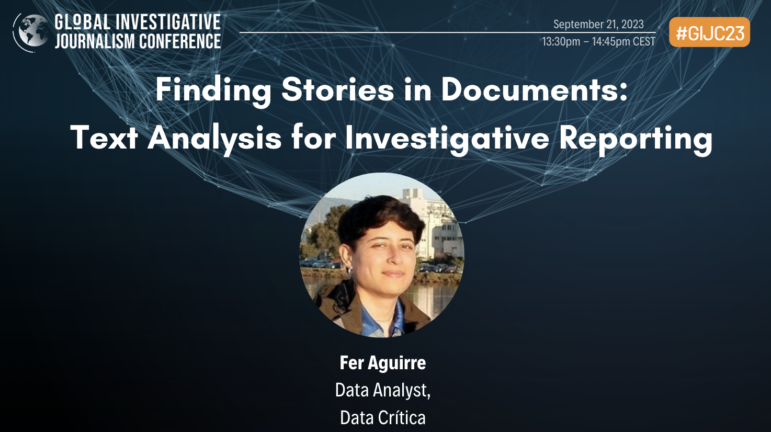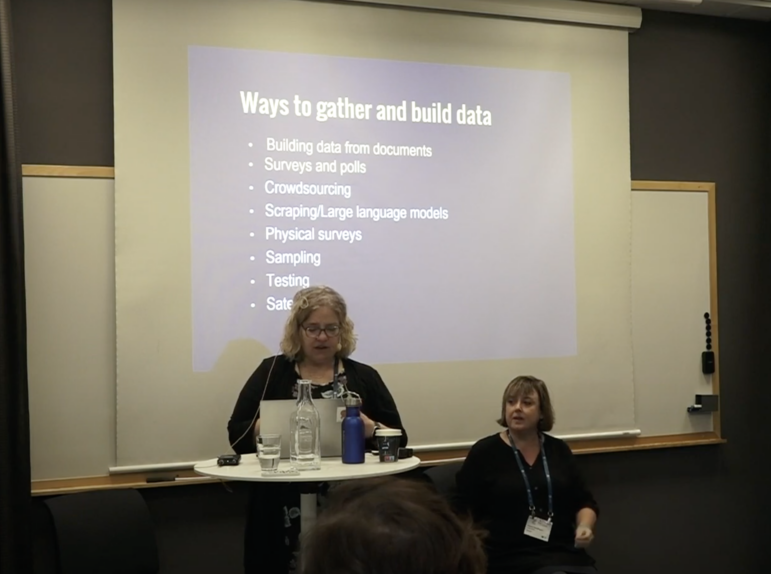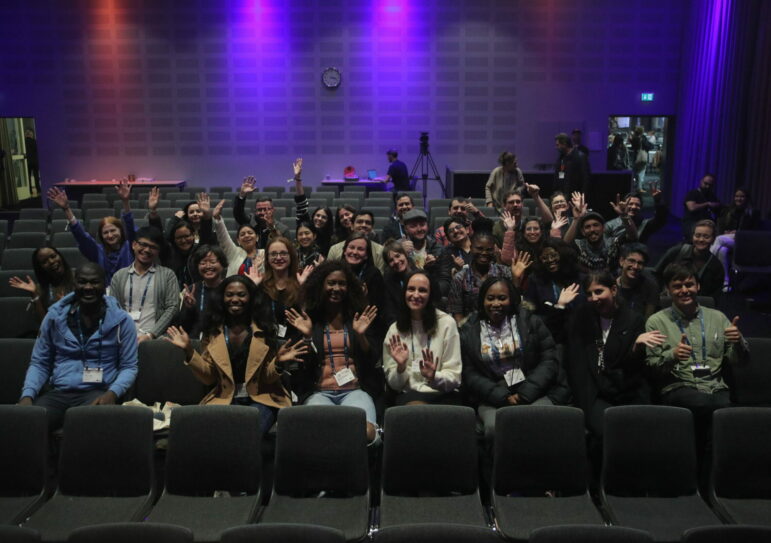Resource
GIJC23 Resources
Here are the tipsheets and presentations shared by speakers at the Global Investigative Journalism Conference in 2023.
Here are the tipsheets and presentations shared by speakers at the Global Investigative Journalism Conference in 2023.
What happened when 80 climate change journalists and experts met to discuss the future role of investigative journalism in climate crisis reporting.

The global boom in audio streaming offers an opportunity for investigative journalists to reach wider audiences by developing multilingual translations of their podcasts.

The best of modern data journalism tells powerful stories that test assumptions. At GIJC23, two experts discussed strong recent investigations and what makes them stand out.

Investigative journalists often face the challenge of reviewing and combining large documents or data in text forms. This can be very exhausting and labor intensive.

What do you do when you don’t get the dataset you need from authorities, or it doesn’t exist? Two experts provided tips at GIJC23.

At GIJC23, GIJN sponsored more than 100 fellows from dozens of developing and transitioning countries.

Global internet advertising revenue is forecast to reach $723.6 billion in 2026. Who makes this money and how they go about it is fertile ground for investigative journalists.

Journalists share stories and tips from their investigations into environmental crimes, from deforestation in the Congo to the Beirut port blast.

Media outlets are now more than ever looking for innovative digital strategies to reach and engage audiences as well as remain sustainable.